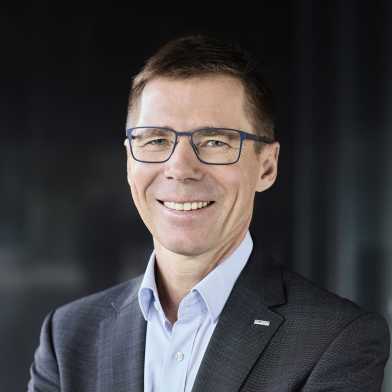D-BAUG News
ETH Zurich launches pioneering construction research project

The HIL building on the Hönggerberg campus is set to become a living lab. Now in need of renovation, the building will be remodelled and extended, with completion pencilled in for 2035. Professorships at ETH Zurich will engage with the project directly to research techniques and designs with the aim of advancing sustainable redevelopment and retrofitting methods.
AI, open access and more in the new course programme from the ETH Library

Just in time for the start of the new autumn semester, the ETH Library is again offering free courses for study, research and teaching.
Deglaciation – surveying the ice

The new exhibition at extract explores the long history of glacier research: from early myths and first measurements to modern glaciology at ETH Zurich.
Building intelligent infrastructure

From pioneering self-aware infrastructure to mentoring the next generation of engineers, Eleni Chatzi is at the forefront of civil engineering’s digital transformation. On the occasion of her promotion to full professor, she discusses her vision for the field, the challenges she faced as ETH Zurich’s youngest assistant professor, and the lessons that continue to shape her research and teaching.
Walter Kaufmann honoured by fib

Walter Kaufmann, Professor of Structural Engineering (Concrete Structures and Bridge Design) at ETH Zurich, has been designated a fib Fellow and was awarded the fib Medal of Merit. The medal recognises his outstanding contributions to structural concrete and the fib – the International Federation for Structural Concrete. Congratulations!
In Memoriam Jakob Maurer (1929–2025)

ETH Zurich bids farewell to Prof Dr Jakob Maurer. He passed away on 30 May 2025 in his 96th year of life. Jakob Maurer joined ETH Zurich in 1966 as an assistant professor and worked as full professor of spatial planning methodology from 1977 until his retirement in 1997. As head of the interdisciplinary postgraduate programme in spatial planning for many years, he greatly contributed to the high esteem of the spatial planning training both in Switzerland and abroad.
What makes a city truly “smart” in the face of crisis?

In a world where cities face increasingly complex crises – from pandemics to natural disasters – researchers at ETH Singapore’s Future Resilient Systems (FRS) programme are rethinking how urban systems respond. In a new video, they explain how technologies like AI, eye tracking, and sentiment analysis are being harnessed to capture public reactions and identify stress points in real time to help city leaders act faster and more effectively.
Awards for excellent doctoral theses

This year, six doctoral students from the Department of Civil, Environmental and Geomatic Engineering are honoured for their outstanding achievements: four of them receive ETH medals, two the Culmann Prize. Big congrats!
Two new "Professors of Practice"

The ETH Board has appointed several professors at the request of ETH President Joël Mesot, including two "Professors of Practice" for the Department of Civil, Environmental and Geomatic Engineering.
"ETH Swiss GeoLab will put us among the world's leaders in Earth observation"

The Jörg G. Bucherer-Foundation's donation of 100 million Swiss francs will enable ETH Zurich to establish a new competence centre for Earth observation. ETH President Joël Mesot explains how the partnership came about and how it will benefit ETH Swiss GeoLab.